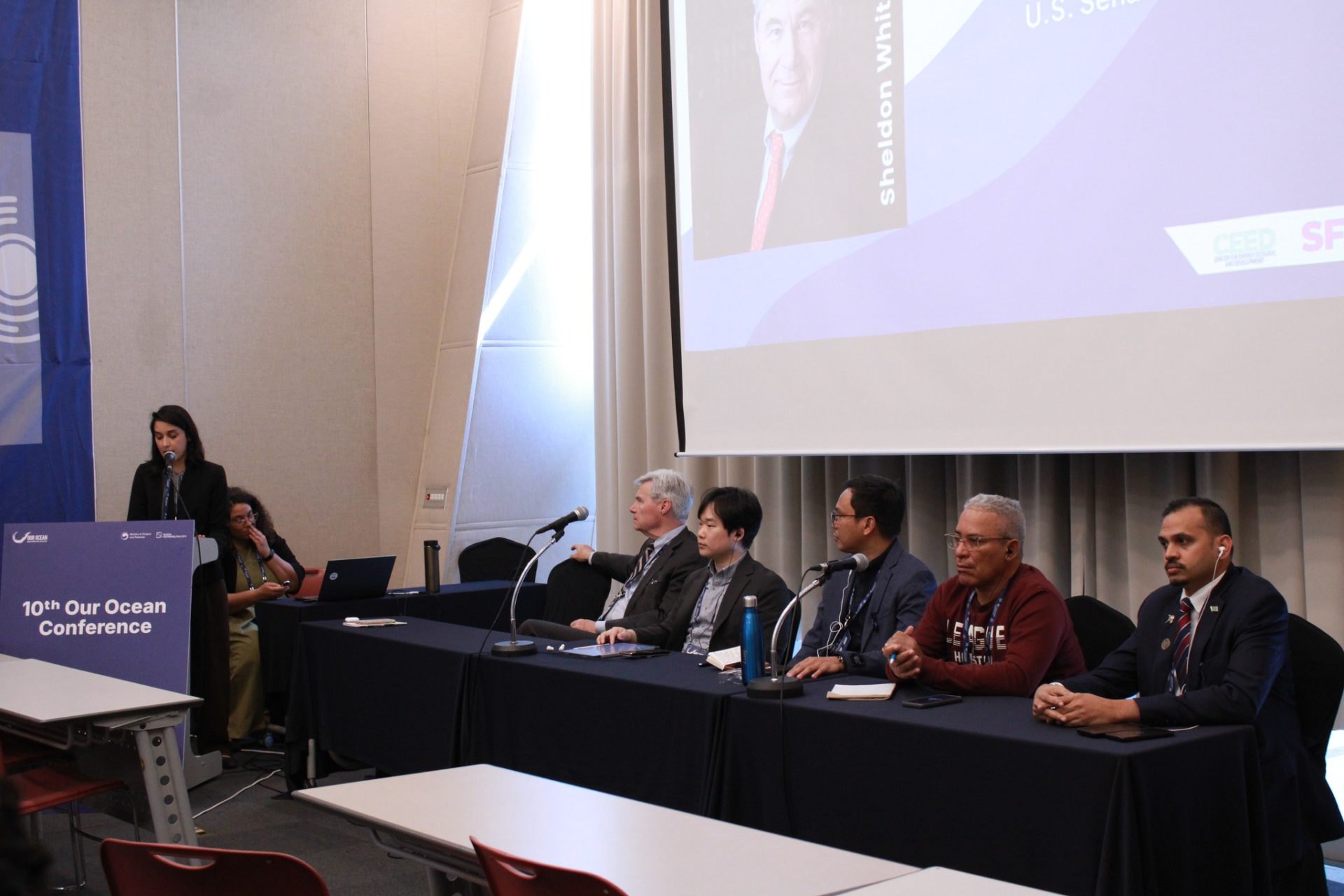Environmental advocates warned that fossil fuel expansion in the Verde Island Passage (VIP) in the Philippines and the broader Coral Triangle poses serious threats to marine biodiversity and human rights, as the 10th Our Ocean Conference (OOC) convened this week in Busan, South Korea.
The Center for Energy, Ecology, and Development (CEED), a Manila-based think tank, said the growing development of gas and liquefied natural gas (LNG) infrastructure in ecologically critical marine areas violates the fundamental right to a healthy environment.
“The Verde Island Passage in the Philippines and the Coral Triangle are under siege by massive fossil fuel expansion,” said Gerry Arances, Executive Director of CEED, during a side event co-hosted by CEED, the Center for International Environmental Law (CIEL), and Solutions for Our Climate (SFOC).
Arances said the expansion of fossil gas and LNG projects threatens the oceans, the environment, and the fundamental rights of individuals and communities to a healthy environment.
He emphasized that fossil fuels not only worsen climate change through emissions but also undermine efforts to build resilience against its impacts.
The VIP, located between the islands of Luzon and Mindoro, is recognized as one of the world’s most biodiverse marine ecosystems.
However, it faces mounting risks from proposed fossil fuel projects. In Southeast Asia, 135.6 gigawatts (GW) of gas power plants are planned, including 14.37 GW of gas capacity within the VIP itself, backed by financial institutions from Europe, America, and Japan, according to CEED.
Arances pointed to the climate impact of methane leaks from gas infrastructure, describing methane as “80 times more potent than carbon dioxide in triggering global warming.”
“The science is clear: fossil gas is a dangerous and polluting energy source. It cannot be considered a transition fuel, especially in a biodiversity hotspot like the Verde Island Passage,” he said.
At the conference, CEED and its partners called on the Philippine government and international stakeholders to urgently recognize the risks posed by offshore oil and gas activities and to support the growing global movement for a “Fossil-Free Ocean.”
Arances urged Southeast Asian countries to pursue a transition to renewable energy, stressing that clean alternatives could drive sustainable development without sacrificing marine ecosystems.
“The Philippines, like the rest of the Southeast Asia region, possess abundant renewable energy sources that can power development without sacrificing our marine ecosystems and the rights of our people,” he said.
The Our Ocean Conference brings together governments, civil society groups, and private sector leaders to address key ocean issues, including climate change, biodiversity loss, food security, and pollution.







